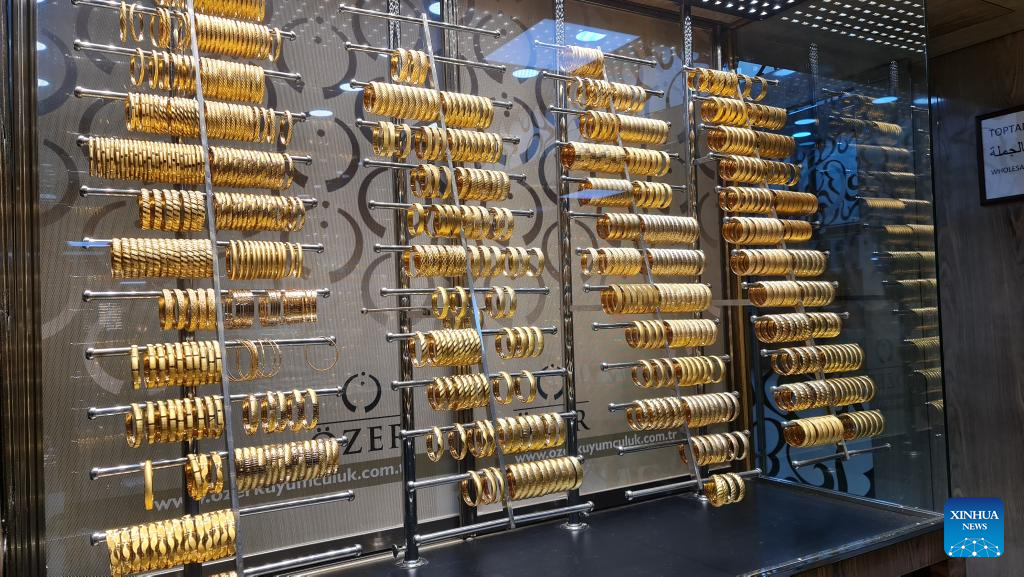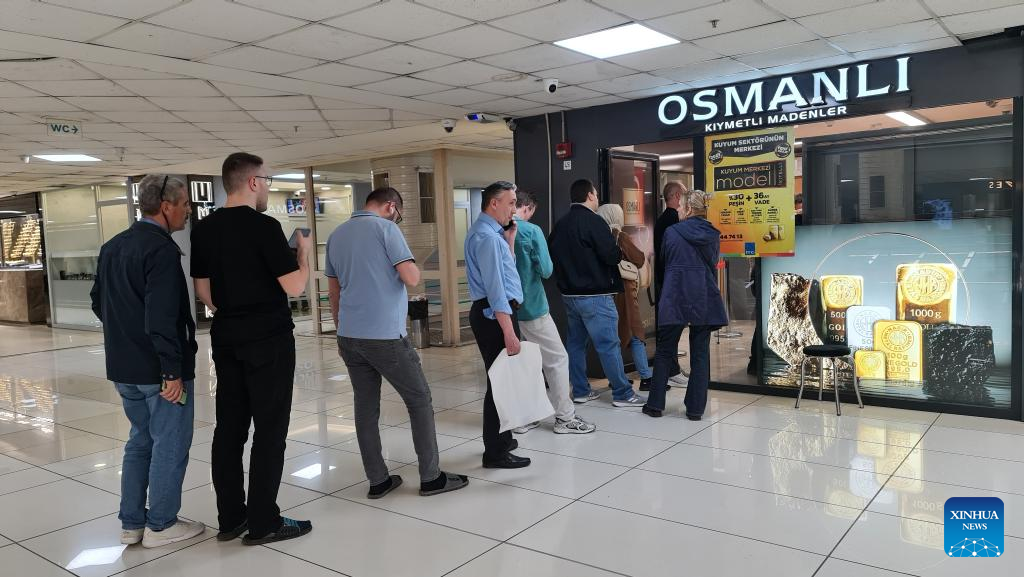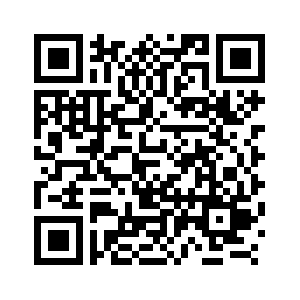
This photo taken on April 17, 2024 shows gold ornaments on display in a jewelry store in Istanbul, Türkiye. (Photo by Safar Rajabov/Xinhua)
ISTANBUL, April 24 (Xinhua) -- Faruk Mutlu, a Turkish citizen, stepped into a bustling jewelry store in Türkiye's vibrant city of Istanbul. Armed with his savings, he resolved to convert them into gold, an alternative he deems "always valuable."
With the escalating tensions in the Middle East at the beginning of last week, rumors swirled of an imminent rise in gold prices, prompting Mutlu to seize the opportunity.
"In Türkiye, it's a cherished tradition to bestow gold upon newlyweds, and with the summer wedding season fast approaching, our demand for this precious metal is soaring," Mutlu told Xinhua.
In Kuyumcukent, a neighborhood in Istanbul renowned as Türkiye's jewelry industry hub, lengthy queues have formed at gold stores amid concerns that the tension between Israel and Iran could escalate into the broader region.
After Iran launched missile and drone attacks on Israel on April 13, Riza Gokay Tugsavrol, owner of the Harem Gold jewelry store, told Xinhua that the continued rise in prices, driven by increasing need, has made gold even more attractive.
"In times of chaos and geopolitical upheavals such as war, investors often see gold as a secure refuge, relying on it as a stable asset," he said.
"Before the conflict, one gram of gold was hovering around the 2,500-Turkish-lira (76.75-U.S.-dollar) mark," he said. "After the escalation, it surged to 2,630 liras and even began testing the 2,650 levels."
At the start of the year, one gram of gold debuted at approximately 2,000 liras in Türkiye.
As tensions slightly eased, the price of one gram of gold went down to the 2,450 mark on Tuesday. Nonetheless, experts anticipate rounds of rise throughout the year in gold prices, spurred by escalating petrol costs amidst global uncertainties.
Echoing Tugsavrol, Murat Tufan, an analyst with the Ekoturk broadcaster, said that the rising prices and the escalating rush for gold underscore the heightened geopolitical risks in global foreign policy.
"The fear index has started to exert its influence, especially after Iran's retaliatory measures against Israel," Tufan said.
"This uptick suggests that investors are growing increasingly uneasy in financial markets, with concerns that the conflict between Israel and Iran could potentially escalate further."
As demand among Turks continues to increase, Abdullah Yasir Sahin, head of the Turkish State Mint, has issued a cautionary note to citizens and shop owners regarding counterfeit gold in small workshops, particularly at a time when gold production is struggling to meet demand. ■

People wait in line to buy gold in front of a jewelry store in Istanbul, Türkiye, April 17, 2024. (Photo by Safar Rajabov/Xinhua)



